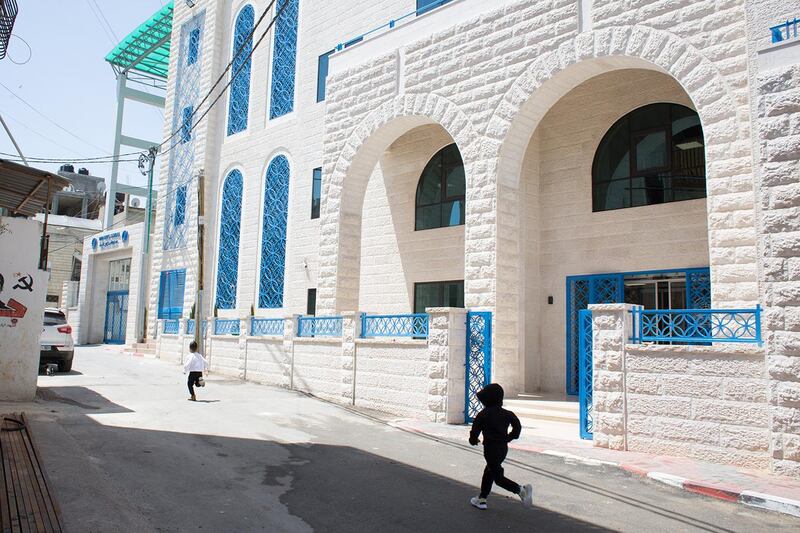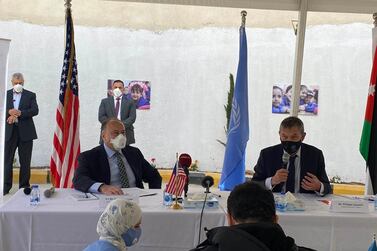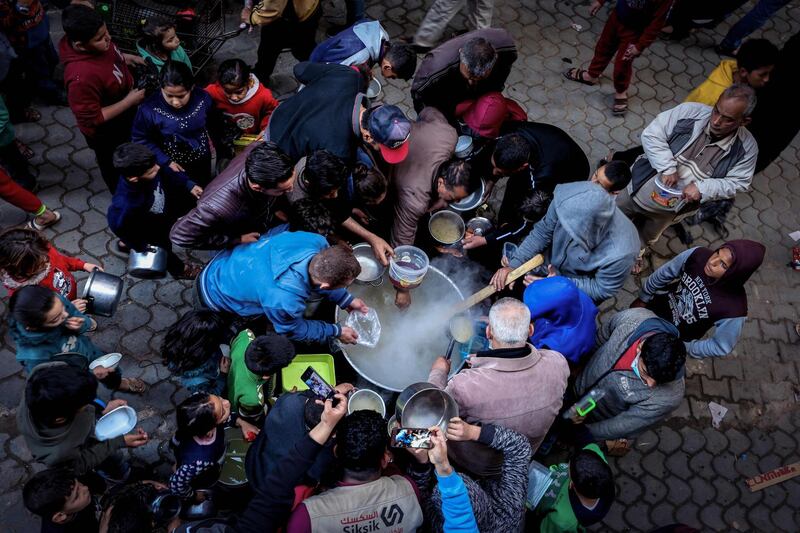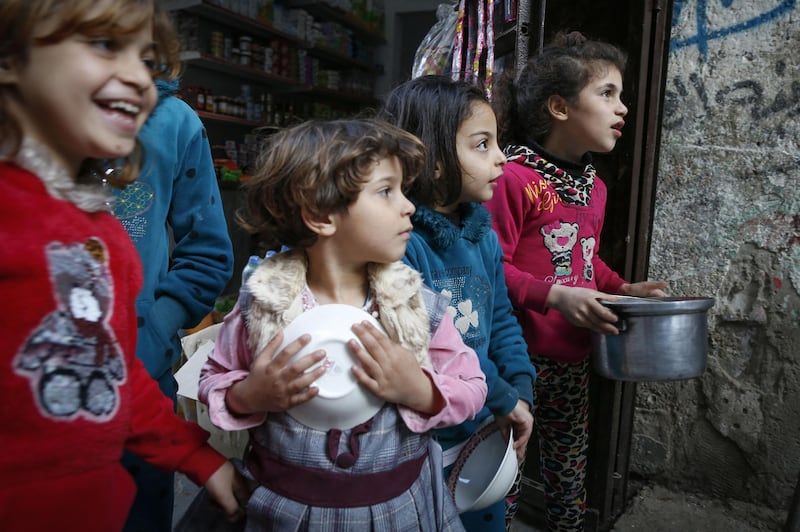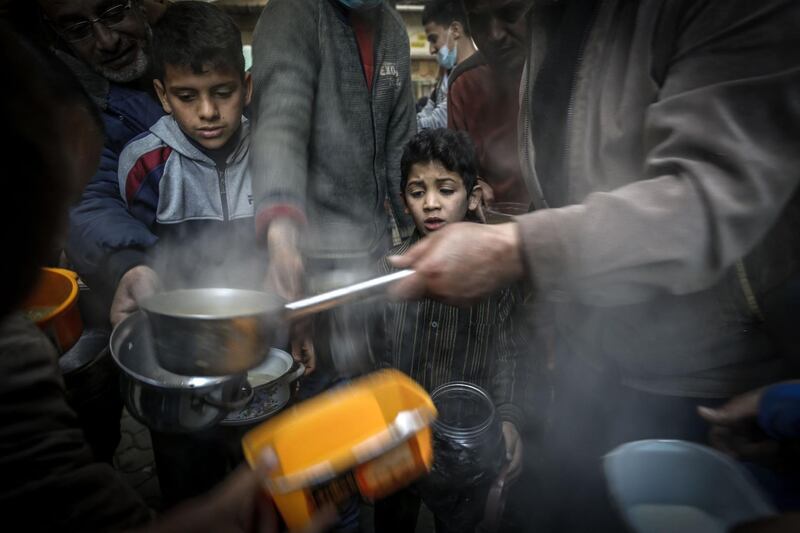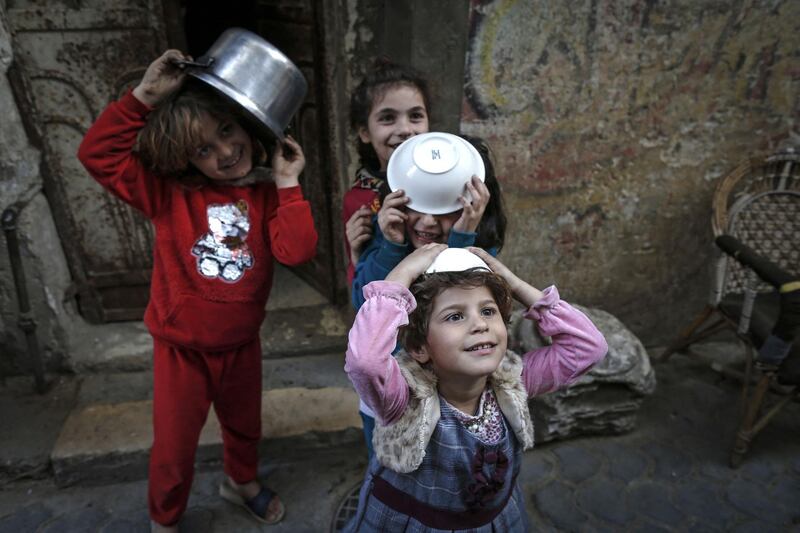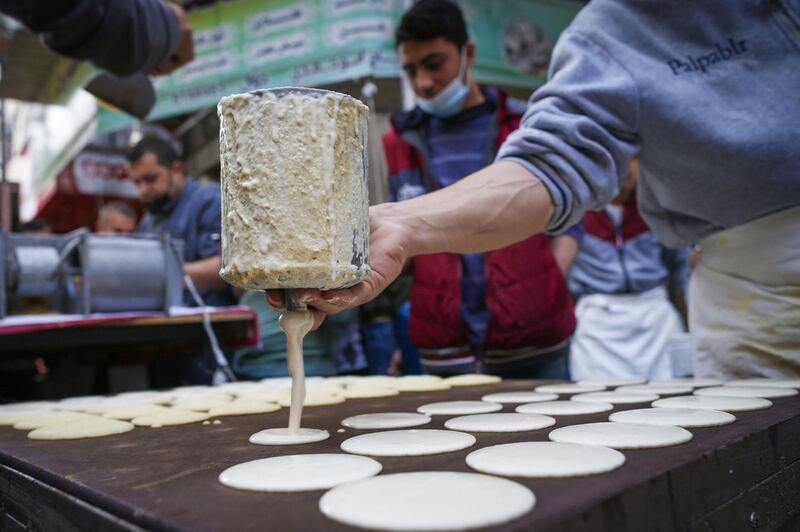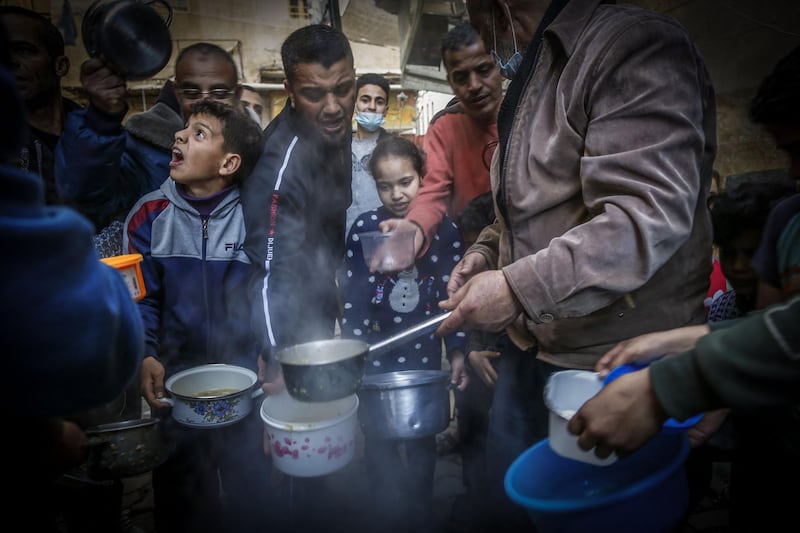Washington's pledge to fund the UN agency for Palestinian refugees was greeted with relief in Bethlehem, where residents hoped the promise may bring an end to the hardship of recent years.
"People need the support and help," said Fatima Abu Salim, a resident of Bethlehem's Aida refugee camp, after Washington announced a $150 million donation to the agency for Palestinian refugees (UNRWA).
"We're very happy that they're helping the Palestinian people," said the 58-year-old, who arrived at a health centre built by the agency.
The $4m project was funded by Saudi Arabia, providing doctors, dentists and a laboratory to nearly 7,000 residents, as well as Palestinians living beyond Aida.
While UNRWA has been able to continue such projects in recent years, the 2018 decision by then US president Donald Trump to cut funding had a severe effect on the agency’s work.
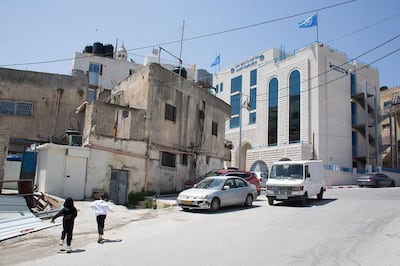
"It wasn't easy at all for us as refugees when we heard that there was a cut, that the US are not providing us with their support anymore," said Hanadi Darwish, head of UNRWA's infrastructure and camp improvement programme in the West Bank.
The UN agency operates across East Jerusalem, Gaza and the West Bank, as well as in Jordan, Lebanon and Syria.
In addition to healthcare, it runs hundreds of schools and schemes such as cash help to those in need.
“It’s not a matter of cutting only the services, it’s the hope,” said Mrs Darwish, who grew up in Aida and designed the health centre and attached school.
Hanadi Darwish, UNRWA official
The US had been the largest contributor to UNRWA, giving nearly $360m in 2017, which amounted to almost a third of the agency’s budget. That was slashed to $60m the following year, when Mr Trump decided to end donations entirely.
The decision reduced the agency’s ability to provide services for about 5.7 million Palestinian refugees in the West Bank and elsewhere, affecting everything from sanitation to building maintenance.
“We used, several years ago, to have half a million for one year to spend on maintenance. This year we received 25 [thousand],” said Mrs Darwish.
“You definitely will not be able to even change the handles on the doors if they were broken,” she said.
In Aida, which abuts the high concrete wall built by Israel to separate it from the West Bank, the Trump decision also ended a cash assistance programme for unemployed residents.
The monthly payouts supported up to 100 families, according to Ibrahim Abu Srour, the Aida camp services officer for UNRWA.
“In Aida, the main issue nowadays is unemployment,” he said, estimating the jobless rate at 27 per cent. “Unemployment is too high - unemployment causes social problems.”
Overcrowding is also a challenge, with thousands of residents crammed into 0.7 square kilometres, as well as outdated electricity and water systems.
“Having money means having opportunities for families,” Mr Abu Srour said.
Although donations from other countries have enabled UNRWA to continue operating and launch some initiatives such as the Aida health centre, the US support was regarded as particularly important as the agency could decide where to spend it.
“We have a yearly budget coming from the US, you can plan for that,” rather than one-off donations for particular projects, Mrs Darwish said.
“You are flexible in how you distribute these funds,” she said. “That’s why it was, for us, a catastrophe, or a disaster, not having the US funding on a regular basis.”
UNRWA said it received a large portion of the US funds on Wednesday, of which about $90m will go to the agency’s budget for services across the region. A further $26m has been earmarked for Gaza and the West Bank.
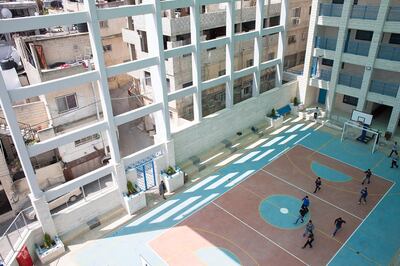
Washington’s decision was criticised by Israel, which said the agency “in its current form perpetuates the conflict and does not contribute to its resolution”.
"The renewal of aid to UNRWA should be accompanied by substantial and necessary changes in the nature, goals and conduct of the organisation," Israel's Foreign Ministry said.
The Palestinian leadership hopes the renewal of funding, both to UNRWA and other projects in Gaza and the West Bank, mark a return to bilateral relations which were severed in 2018.
In a further shift in policy from the Trump administration, on Monday, the US ambassador to Jordan, Henry Wooster, said that his government recognised all Palestinian refugees registered by the UN, not only those who fled Israel decades ago.
In Aida, where generations of Palestinians have grown up since the camp’s establishment in 1950, Mrs Darwish said the pledge from Washington had been a boost to the community.
“It’s not a matter of having only services,” she said. “There is something more valued in having the US continue supporting us.”
_______________
